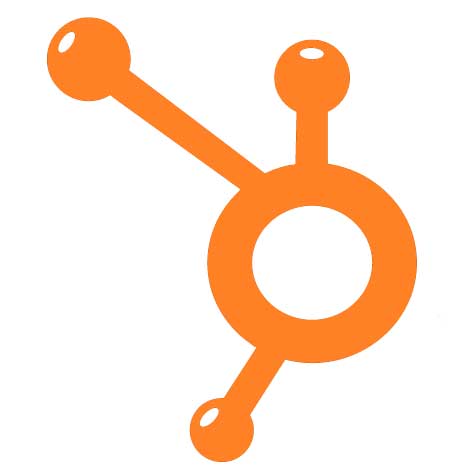All TopicsSocial Mediainbound marketingcontent marketingMarketing PrinciplesContent Marketing Strategyinbound marketing agencyMarketing PlanPetaluma CAMarketing strategySEOcontent creationBusinessFacebookBlogginglocal SEOlocal inbound marketingwebsite trafficBusiness Blogginglocal internet marketinginbound marketing strategyaffordable internet marketingsocial media marketingcontent distributionbusiness blogSearch Engine OptimizationBusiness OwnerinfographicInbound marketing agency in CAblogging strategymarketingBroadVision MarketingBroadVision Marketing in Petaluma CALinkedInonline marketing strategyAdvertising and MarketingBrandingCTATwittervideoLeadershipUsing Different MediaLanding pagesSEO strategyblogdistribution channelsmobile searchsocial media strategyemail marketingBroadVision Marketing Petaluma CAInternet Marketing StrategyOnline CommunitiesEmail listscall-to-actionGoogle Searchdigital marketinginbound social media marketinginternet marketingshort form videotrust buildinginbound marketing tipsMarketing and AdvertisingemailCorporate blogMarketing in Petaluma CAVideo Marketingemail marketing strategyinfographicsmarketing mixvisual contentwebsiteAdvertisingGoogleJaco GrobbelaarLanding page optimizationaffordable SEObusiness blogsinternet marketing tipslanding pagelead generationJaco Grobbelaar BroadVision Marketing Petaluma CAblog post ideascontent developmentinternet marketing tiplead magnetMarketing ObjectivesSEO companySMART goalsSmall business marketing strategyTeam leaderYouTubeaffordable local seoblog postinglocal inbound marketing agencySEO servicesbest seo practicesebookslocal seo marketingmobile marketing strategyoutbound marketingtarget marketwebsite designInbound marketing agenciesMarketing SyntaxPPCbacklinkscomplimentary Marketing Strategy Sessiondigital marketing strategylead generation strategymarketing trendson page SEOvideo marketing servicesGoal settingGuest BloggingMarketing strategy.business bloggingSlideShareVideosWeb contentYouTube Videosaffordable internet marketing tipsattract customersdigital marketing objectiveshomepageinbound content marketinginbound marketing localinbound marketing strategieskeyword researchmobile marketingnewsletteroff page seooutsourcingreviewsBest LinkedIn TipsCRMCompanyCustomerOptimizationSERPSmall businessSocial networkTarget AudienceUniform Resource LocatorWeb search enginebest business blogsbusiness blog post ideasgraphicsinbound marketing coachinternetlinkedin for businesslocal seo basicsmarketing strategiesnative videoorganic keyword searchpersonasAIKeywordsMarketing MessageOpt in e-mailPinterestTeamworkTelevision advertisementWordPressYelpanalyticsblog headlinesbrand awarenessinbound marketing campaign creationlist buildinglocal inbound marketing tipmarketing coachmarketing site trafficpay-per-clickrepurposing contentsales funnelsample marketing plansmartphonesocial media optimizationtarget marketingwhite papersBrandBranding Case StudyCommunicationConflict resolutionConversion rateGoogle AnalyticsHubspotLinkedIn profileMedia Marketing StrategyNetworkingProfessional Services ProviderQR CodeSan Francisco Bay AreaTeamTeam conflictUnited StatesUser-generated contentagencyarticle writingauthority contentblog post tipsclientscontentcontent curationconversiondriving traffichow to get more clientsinboundinbound lead generationinbound marketing Petalumainbound marketing tipincrease website trafficinformationkeywordleadlead nurturinglocal inbound marketing strategylocal seo companylocal seo servicemarketing ball gamemarketing budgetmarketing helpmarketing predictionsmedia sharingmobile-friendly designpaid mediapowerpointpress releasepromotionreferralssearch enging marketingsegmentationsocial media networksthe 7 Psthought leadershipuser experienceweb marketing tipsword of mouthAIDAAdvertising mailBacklinkChamber of CommerceCohort marketingControversyCustomer ReviewsDecision makingFacebook advertisingFowlesGoogle MapsHeadlineLikesLinkedIn Company Page
What Are the Characteristics of Well-functioning Teams?
[caption id="" align="alignright" width="150" caption="Team members at work"] [/caption] The purpose for teams is to com …
How That Leader Avoids or Resolves Conflict
[caption id="" align="alignleft" width="300" caption="Team members working together"] [/caption] Have you ever noticed h …
Conflict HappensHow That Leader Spots It
[caption id="attachment_2499" align="alignleft" width="200" caption="Team Member Disrupting a Meeting"] [/caption] Every …
.png?width=302&height=75&name=BVM%20Logo%20-%20transparent%20(1).png)

